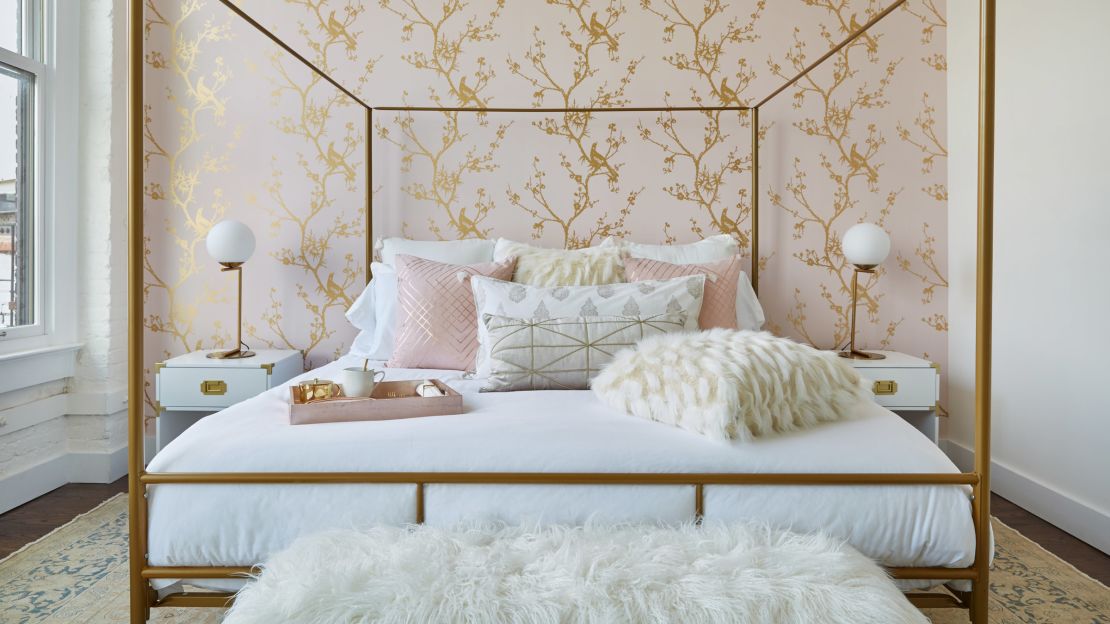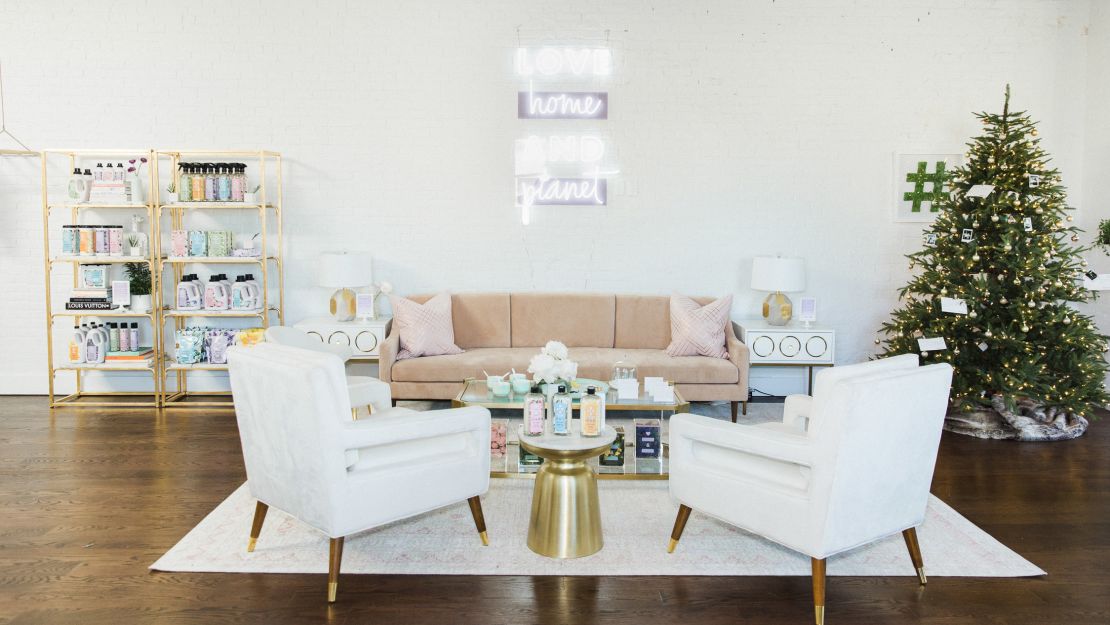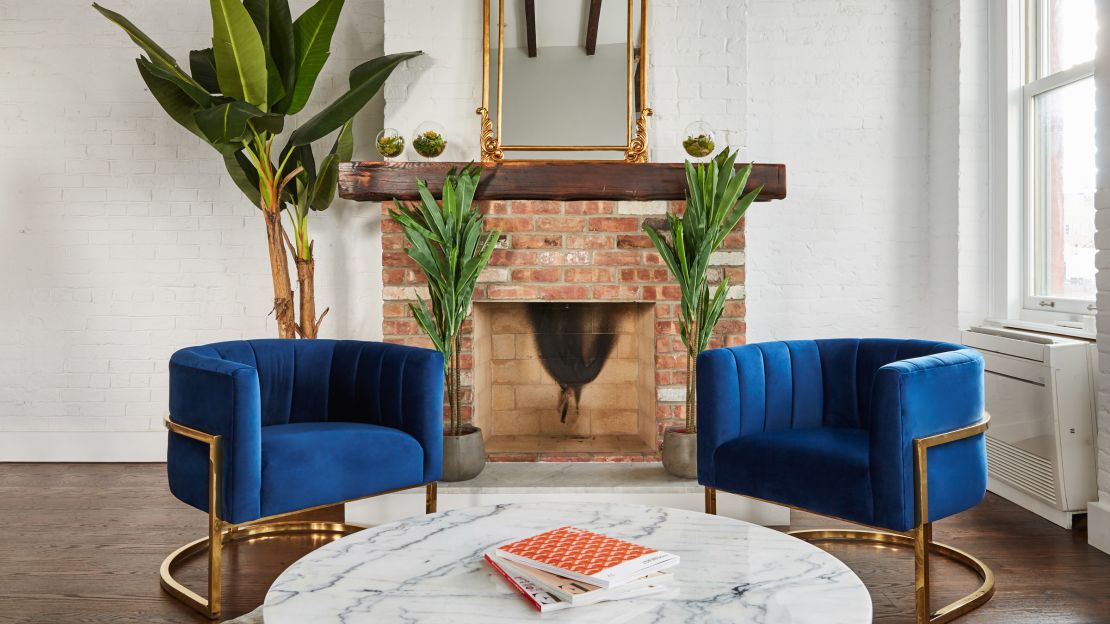A Millennial pink couch, faux sheep skin pillows and gold accents are some of the first things you notice when you walk into Village Studio, an Instagram-worthy penthouse apartment in Manhattan’s SoHo neighborhood. Everything is meticulously arranged, and the space isspotless.
Vickie Segar, the founder of Village Marketing – a firm that connects social media stars with brands for partnership deals – received a lot of attention in the fall when she first showed off the space, designed to be the perfect background for Instagram photos.
The $15,000-per-month two bedroom apartment is decorated with furniture provided by Wayfair, fresh flowers, trendy art pieces and carefully organized bookshelves.

Many social media influencers living in New York have tiny apartments, so Segar saw a need for them to have access to an elaborate space for shooting content. But she didn’t expect how much interest the apartment would receive from brands.
Since its August 2018 launch, more than a dozen brands – including Unilever, L’Oréal and Stuart Weitzman – have used Village Studio to capture content for their social media channels, launch new products, or host small influencer and media events to demonstrate new offerings.
“Brands need a large quantity of content,” Segar told CNN Business. “Social media requires posting every day. Having a place they can go to quickly and get something done is so invaluable for them.”

Social media is a key way for companies to reach new and existing customers and increase brand awareness. Businesses also work with influencers to tap into their follower bases.
Segar said the Instagrammable space has become a second business. A team of six people, including her, now oversee Village Studio.
The space is free to use for influencers. About 50 have used it so far, and over 1,000 are on the waitlist.
But brands pay $8,000 to $12,000 per day to host an event, and $3,000 daily to only shoot content. Village Marketing can also transform the space, such as adding props and elaborate flower installations, for an additional cost ranging from $10,000 to over $100,000.
Brands capture social content in a variety of ways, but a common method is shooting in an all-white studio staged with props.
“It’s a different type of shot,” Segar said. “It’s expensive, time consuming, and more importantly, it’s not the photography that performs on social. Overly produced studio shoots aren’t the way brands are producing content anymore.”
Olivier Toubia, a marketing professor at Columbia Business School, said the space gives brands the right environment and backdrop to capture the “best possible image of the brand.”
“Reproducing a home environment is valuable to really show lifestyle images,” he said. “It’s not just about the product, but how it would be used as part of a lifestyle.”

Nicole D’Anna Long, project manager at Revlon’s Elizabeth Arden brand, said images in a “home environment” or realistic-looking setting perform better on social media than a traditional studio shot.
The Elizabeth Ardenbrand recently spent a day photographing products and models in the apartment. Long said the brand has an internal requirement to post 62 pieces of social content per month.
“Budgets obviously aren’t super high for social, so we have to try to maximize our shoot days,” Long said. “Most people are trying to save money. … When you don’t have to go into an empty space, and hire a set designer and build an entire set, that’s a huge draw to people.”
But for Long, one of the drawbacks of the space was that the brand had to bring in all of its own equipment, such as special lighting, but called the overall rental price “really affordable.”
A traditional studio can range from $200 per hour to thousands for the day, and the brand is typically responsible for staging it with props and decorating, according to Village Marketing’s Segar.

But Village Studio’s popularity could pose an issue for brands and influencers if it becomes too recognizable and redundant in social feeds. To address this, the firm plans to redesign the space often, such as bringing in new furniture or making subtle changes. It’s already remodeled one of the rooms,transforming it from a sitting room into an Instagrammable closet.
The firm is looking to expand, too. It plans to open five more Village Studio locations in cities like New York and Los Angeles by the end of the year.

“It’s not a bad business idea,” said Ryan Skinner, a senior analyst at research firm Forrester who covers influencer marketing. “You see a need – it’s a narrow, very specific kind of need – and you fill it. Just as the likes of WeWork and Regus [co-working spaces] have grown off a particular narrow need … I can see the same thing happening there.”
In fact, Skinner says we’ll likely see the concept in every major US city soon.






